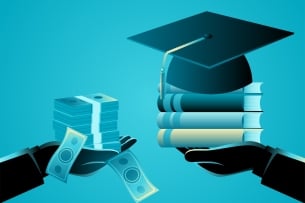Filter & Sort

Tackling the STEM Skills Gap in 3 Weeks
If we stand a chance of catching up to the rapid advancement of technology, it’s time to speed up the skills development of today’s students, write Justin Shaffer, John Spear, Kalen L. Rasmussen and Patrick H. Thieringer.

Fostering Students’ Intercultural Competence
Shakil Rabbi describes how an innovative class helped diverse students from various countries and backgrounds navigate cultural differences.

Using Montessori Tactics in College Classes
Jaime Warburton details six key tenets that can provide many educational benefits.

How Did You Get Here?
Matt Brim and Jessica Murray describe how having students write educational narratives can promote slow active learning.

Creating Classroom Community Agreements
They provide the best way to cultivate critically compassionate learning communities, writes Jesica Siham Fernández.

How Much Do Students Pay to Attend Your Class?
Calculating the specific amount might make you—and your students—reconsider how you approach class time, writes Justin Shaffer.

Unlocking Students’ Experiential Intelligence
Helping students tap into the assets gained from their lived experience helps them develop essential mind-sets and abilities for their future success, write Soren Kaplan and Lindsay Godwin.

The Uncertain Future of Class Discussions
As instructors, we are still examining how student engagement, which plummeted after the pandemic, remains in question even today, writes Douglas L. Howard.
Pagination
Pagination
- 6
- /
- 8